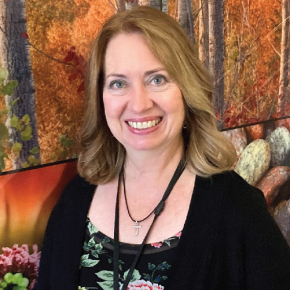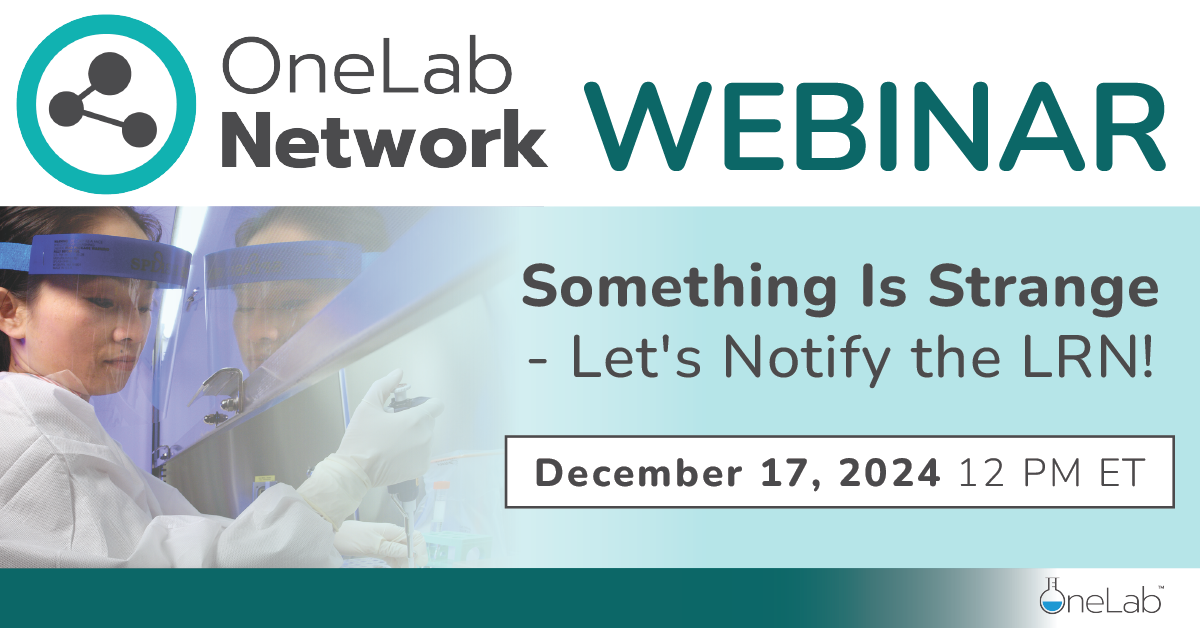Event Description
Clinical laboratories must be alert for unusual and potentially infectious agents and immediately notify their Laboratory Response Network (LRN) reference laboratory if routine diagnostic testing results in the potential identification of rare and unusual infectious agents that may be used in a bioterrorist attack or other bio-agent incident. This webinar will describe the LRN and highlight the clinical laboratory's role and responsibilities in initiating contact with their LRN. Join us as we share an example of a response, new tools, and valuable resources to aid in the clinical laboratory's response.
Event Objectives
After completing this training, participants will be able to:
- Identify educational and other resources available through the OneLab Network.
- Summarize the role of the clinical laboratory in the LRN.
- Describe tools and resources available to aid laboratories with safely handling a suspect highly infectious agent.
- Identify when you would initiate a call to your LRN Reference Laboratory.
Continuing Education
Professional Acknowledgment for Continuing Education (P.A.C.E.®)
- The Centers for Disease Control and Prevention, Division of Laboratory Systems is approved as a provider of continuing education programs in the clinical laboratory sciences by the ASCLS P.A.C.E.® Program.
- This course is approved for 1.5 contact hours. P.A.C.E.® Course #: 288-308-24
- Instructions for obtaining P.A.C.E.® credit through OneLab REACH™ will be provided during the webinar.
Event Speakers

Erin Bowles, BS, MLS(ASCP)
Wisconsin Clinical Laboratory Network Outreach Coordinator
Wisconsin State Laboratory of Hygiene

Shoolah H. Escott, MS, MT(ASCP)
Biosafety, Biosecurity, and Bioterrorism Preparedness Trainer
Biosafety and Biosecurity Training

Chris N. Mangal, MPH
Director, Public Health Preparedness and Response
The Association of Public Health Laboratories (APHL)

